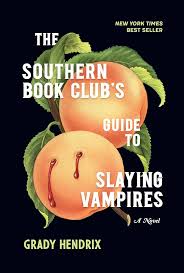Chapter 36
byChapter 36 begins with a sudden and dramatic shift in the weather. By noon, temperatures had dropped sharply, and storm clouds massed above the Old Village like a warning. The wind howled across the bridge, rocking cars and making them weave from one lane to another. Streets that had earlier echoed with the sounds of children and chatter were now silent, scattered with dry leaves tumbling like forgotten memories. In Slick’s hospital room, the wind’s force rattled the windows so fiercely it felt like the outside world might break in at any moment. Inside, the cold settled in like an unwanted guest, wrapping its fingers around everyone present.
Patricia sat with Kitty and Maryellen, each of them trying to mask the anxiety tightening in their chests. Kitty’s paper gown barely covered her sequined sweater, a reminder of how out of place they all were in a room meant for medical care, not covert meetings. Maryellen fidgeted, concerned about her daughter’s school project, while Patricia focused on the growing tension. When Mrs. Greene entered and took a seat without a word, the room seemed to tighten further, everyone anticipating what was to come. It was Slick, frail and sunken under her cardigan, who had called them together. And her condition, obvious and heartbreaking, gave weight to what they were about to discuss.
Their group was unexpectedly joined by Grace, whose arrival briefly upended the mood. Grace’s discomfort was visible from the moment she walked in, already inching toward the door before Slick’s plea rooted her in place. As they all sat encircling Slick’s hospital bed, it felt like a strange resurrection of their old book club—except this time, no fiction would cushion the horror. Patricia began slowly, admitting she had been wrong before, not about the danger, but about the form it took. When she finally said the word vampire, the room held its breath. There were no gasps, only stunned silence and the heavy sound of Slick’s labored breathing.
Slick’s voice trembled as she confirmed Patricia’s account, recounting how she had tried to negotiate with James Harris and was met instead with violence and degradation. The memory brought tears, but also resolve. Her vivid description of his violation, both physical and emotional, left no one untouched. The idea that he had somehow tainted her body and left a sickness no doctor could explain sent a chill through them all. Patricia added to the testimony with a photo showing Korey’s injury—proof of the predator’s reach into her own family. The mark, familiar from previous unexplained deaths, confirmed what they’d all suspected: Harris was not just a danger. He was an active threat.
As each woman processed the implications, the atmosphere thickened with dread and a dawning sense of duty. Patricia insisted they could no longer wait, that silence and fear had enabled Harris to slip through the cracks. She outlined his manipulation, his grooming of Korey, and his growing influence over Blue. What began as suspicions had evolved into patterns, and now, undeniable evidence. Kitty confirmed she had seen Francine’s contorted corpse in Harris’s attic, breaking the final seal on their shared horror. Grace, however, remained cold, even accusatory, until Mrs. Greene confronted her with a powerful reminder: the forgotten children of Six Mile.
Mrs. Greene’s words hit harder than any accusation. Her quiet dignity, grounded in truth and long-held pain, reminded them all that this wasn’t about stories—it was about lives. The names of her children, spoken aloud, underscored the reality that they had turned away from a community in need. Her challenge was clear: would they do the same again now that the threat had reached their own homes? Grace, unable to face that mirror, left in silence. The remaining women sat heavy with the weight of her absence.
Slick spoke next, quoting Proverbs to reflect on their moral failure. Her words made it clear that their inaction had cost lives. Patricia then declared that Harris, whether vampire or monster, would not stop on his own. His survival depended on the suffering of others. If they didn’t act, no one would. They were the last line of defense. It wasn’t just about confronting evil. It was about reclaiming power from fear.
Maryellen protested that they were not warriors, but Slick’s response cut deep. Southern women, she said, were expected to be polite, not powerful. But the reality was that beneath the surface, there was resilience hardened by centuries of survival. They were not fragile. They were forged in fire, and they could face this threat together. Patricia added that Harris’s solitude would be his undoing. No one would come looking for him. No one would mourn his absence.
Plans began to take shape. They chose the night of the Clemson-Carolina game, when the town would be distracted. Patricia had researched legends and superstitions, filtering myth from strategy. They wouldn’t rely on stakes or sunlight. They needed a plan grounded in logic and survival. Harris had underestimated them before. That would be his mistake.
By the end of the meeting, they had passed an invisible threshold. The decision was made, and no one spoke of turning back. They were no longer a book club. They were a force determined to protect their children—even if it meant confronting the unthinkable.


